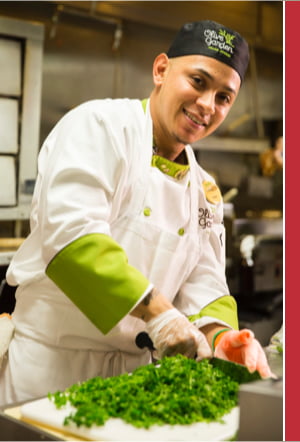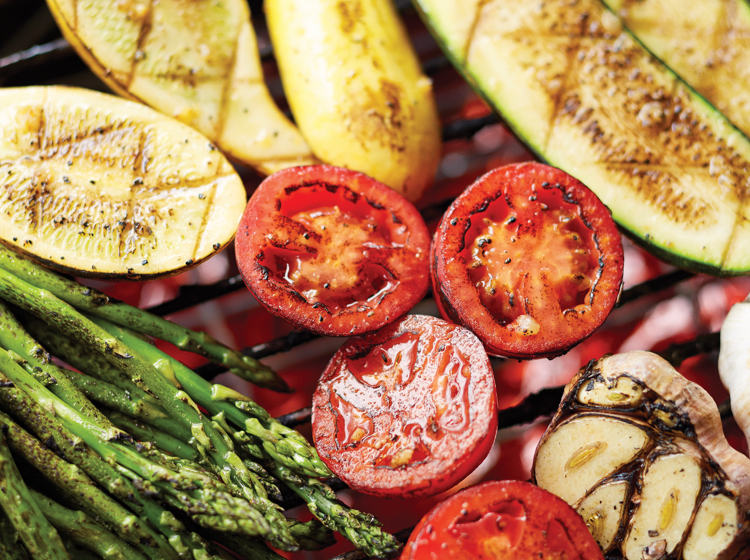Living Our Food Principles
We know that where our ingredients come from and how they are grown are integral to preparing great food for our guests. Darden’s Food Principles are our foundation for sourcing food for our guests sustainably.
$3 billion
in food products per year
From 1,400 Suppliers
In 30 different countries
Beef (25%)
Produce (12%)
Dairy (9%)
Seafood (8%)
Poultry (8%)
Pork (2%)
Our Food Principles
Great food starts with quality ingredients...
 We recognize that where our ingredients come from and how they are grown are integral to preparing great food for our guests.
We recognize that where our ingredients come from and how they are grown are integral to preparing great food for our guests.
Food safety has always been our top priority, and we promise to use ingredients that meet our high standards for safe, wholesome food. To do that, we continue to implement best-in-class food safety and total quality programs, both in our restaurants and with our suppliers, every day. We are also mindful of the sustainability of ingredients, including the social and environmental benefits of the food we buy.
We are also committed to empowering our guests to make informed decisions about the food they eat by providing information about nutritional content and allergens.
...that are sustainably sourced.
We support a broad community of farmers, ranchers and other suppliers who work hard to help us bring great food to our tables. Given our mutual interests, we expect our suppliers to share our commitment to doing business the right way.
As we source our ingredients, Darden maintains our Supplier Code of Business Conduct, which outlines our expectations for our suppliers in areas such as ethical business practices; anti-corruption; human rights and labor laws; environmental, health and safety practices; and legal compliance.
Darden takes animal welfare very seriously. We have a responsibility to ensure that animals are treated with respect and care in the process of providing nutritious food that is served in our restaurants. Darden is careful to work with suppliers who share our commitment to animal welfare. We expect our suppliers to align with the internationally recognized principles of best care throughout the life of farm animals and to also provide a valid and verified animal welfare certification. For more details, see Darden's full Animal Welfare Policy.
Advancing Sustainability in the Beef Industry
Beef comprises one of the largest portions of our food basket, with 97% of Darden’s beef coming from the United States. Advancing sustainability in the beef industry is essential for all stakeholders in the beef value chain and, while Darden is and will remain a relatively small buyer within the total beef market, we are committed to helping find solutions that reduce the environmental impacts of beef production and support the livelihoods of beef producers.
We work to promote continuous improvement in beef sustainability through:
- Our participation as a founding member in the U.S. Roundtable on Sustainable Beef to support priority areas established across the beef value chain, including animal welfare indicators
- Our membership in the National Cattleman’s Beef Association
- Supporting industry-wide assurance programs such as Beef Quality Assurance (BQA)


